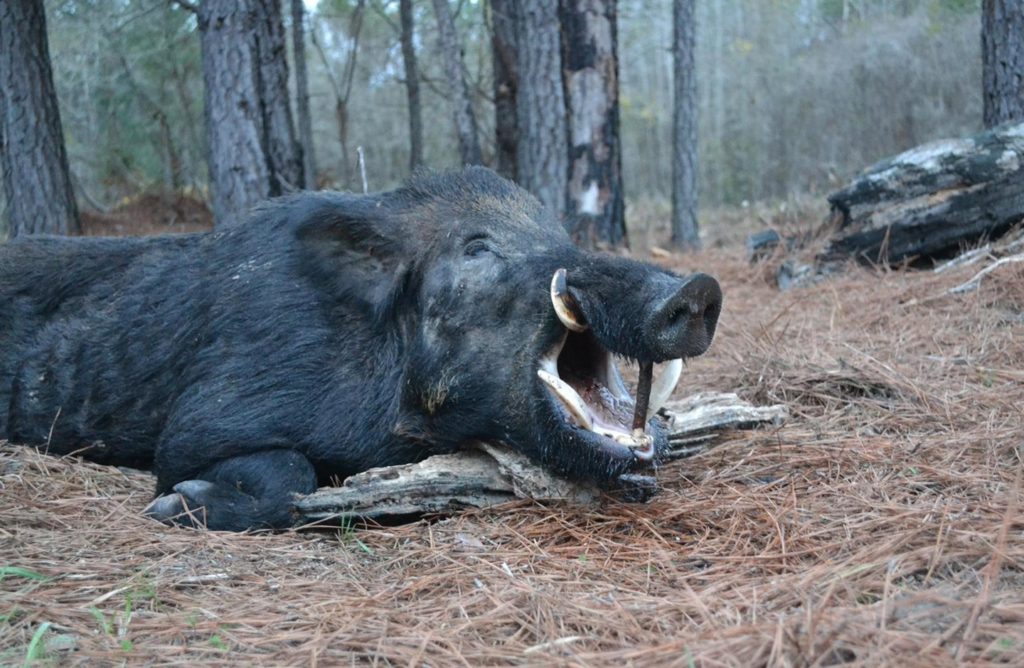Introduction:
In the heart of Texas, the pervasive issue of wild hogs, notorious for wreaking havoc on both rural and urban properties, has long been a cause for concern. These invasive creatures, responsible for approximately $2.5 billion in damages in the state, have prompted extreme measures, including the legalization of various hunting methods and the introduction of the controversial warfarin poison. However, a recent study from Aarhus University in Denmark challenges the conventional narrative surrounding wild hogs, suggesting that these seemingly destructive creatures might play an unexpected role in fostering ecological benefits, particularly in enhancing plant life.
Study Highlights from Aarhus University:
Contrary to the prevalent perception of wild hogs as destructive menaces, the study from Aarhus University delves into the ecological impact of feral, plant-eating mammals, weighing over 100 pounds. While the study is not specifically centered in Texas, its findings offer a unique perspective on the broader implications of such creatures, including wild hogs, that are prevalent in various regions. The focus lies on their potential role in increasing plant diversity in invaded areas through the dispersal of seeds.
Destruction Caused by Wild Hogs in Texas:
The narrative of wild hogs causing extensive destruction in Texas, resulting in substantial economic losses, is well-documented. These creatures, known for tearing up the ground and posing threats to property, pets, and livestock, have led to a surge in efforts to control their population. Texas has even gone as far as legalizing the hunting of wild hogs in multiple ways, including the controversial use of the warfarin poison to curb their numbers.

Read more:
- Listeria Outbreak Hits 11 States: 2 Dead, Several Afflicted, Says CDC
- New York Businesses Navigate Credit Card Fee Changes: Transparency in Transactions
- Claim Your Share: New York State Holds $18.4 Billion in Unclaimed Funds
- Taylor Swift Takes Legal Action Over Florida Student Tracking Jet
Insights from the Study:
The Aarhus University study challenges the conventional approach of relentless eradication of wild hogs, proposing a nuanced perspective. The scientists behind the research argue that the presence of feral animals, particularly those with a penchant for grass consumption, such as wild hogs, could inadvertently contribute to the enhancement of plant life in invaded areas. By spreading seeds through their activities, these animals may play a role in boosting plant diversity, fostering a more intricate and resilient ecosystem.
Balancing Conservation Efforts:
While the study advocates for a reconsideration of mass culling of wild hogs due to potential ecological benefits, the dilemma remains evident. The population of wild hogs in Texas has spiraled out of control, causing tangible and immediate threats to the local environment. Striking a balance between conservation efforts and the urgent need for population control poses a complex challenge for wildlife management authorities.
Conclusion:
The revelation from Aarhus University opens a new chapter in the ongoing discourse on wild hogs in Texas. As the state grapples with the economic and ecological consequences of their presence, the study prompts a reevaluation of existing strategies. While acknowledging the potential ecological benefits, it is imperative to address the immediate threats posed by the unrestrained wild hog population. As Texas continues its battle against these invasive creatures, finding a comprehensive and sustainable solution remains a critical objective—one that considers both the preservation of local ecosystems and the safeguarding of properties and livelihoods.
In a landscape where the clash between human interests and ecological balance is palpable, navigating the complexities of wild hog management requires a holistic approach. The Aarhus University study invites stakeholders to engage in a more nuanced conversation, fostering a deeper understanding of the intricate relationships within Texas’ diverse ecosystems.

